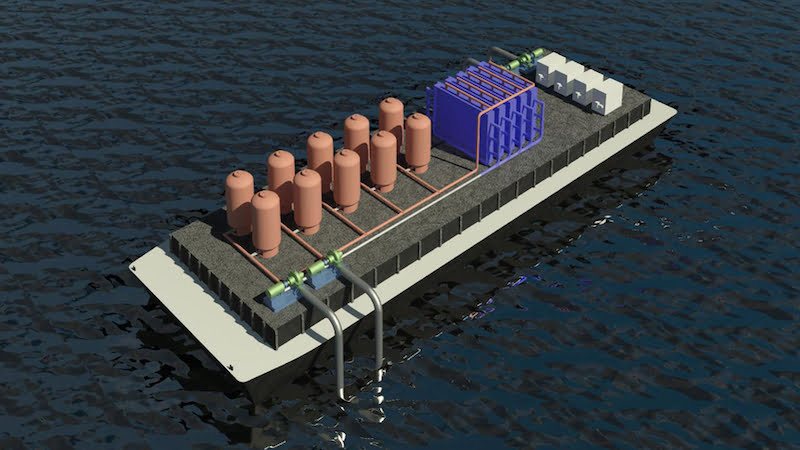
A research team from the Massachussets Institute of Technology (MIT) wants to use a new process to filter CO2 out of seawater. This is to prevent the acidification of the oceans.
Climate change is a problem for our oceans. Because the absorption of CO2 changed the pH value of the water. As a result, the seas are becoming more and more acidic. In the long term, this poses an immense risk to marine life. It also seems that our emissions are not decreasing fast enough.
Researchers at the Massachusetts Institute of Technology (MIT) therefore developed a method to counteract this. To do this, they built a prototype with two chambers that is intended to filter CO2 from seawater in the long term. In order for this to work, the scientists first enrich the water in the first chamber and make it even more acidic.
Researchers filter CO2 from seawater
In this way, the mixture in the water turns back into carbon dioxide, which remains in a vacuum in the gaseous state. The system then directs the prepared mixture into a second chamber. In this, a reverse voltage pulls protons out of the water, making it more alkaline again.
If an electrode runs out of protons during the process, the researchers simply reverse the order. The second chamber then extracts CO2 from the seawater, the first correspondingly protons. So that the resulting CO2 does not simply escape into the environment, the team proposes further use in industry.
First use of the technology in about two years
Even higher efficiency can be achieved by connecting to other systems. A plant could, for example, desalinate seawater and purify it at the same time. Use on ships is also possible. However, the technology is not yet widely available.
The first device should be available in two years at the earliest. Until then, the team wants to evaluate whether the process without a vacuum is also possible. Then we could tackle the problem earlier and save the world’s oceans from dangerous acidification.
Also interesting:
Source: https://www.basicthinking.de/blog/2023/02/25/co2-meerwasser/


